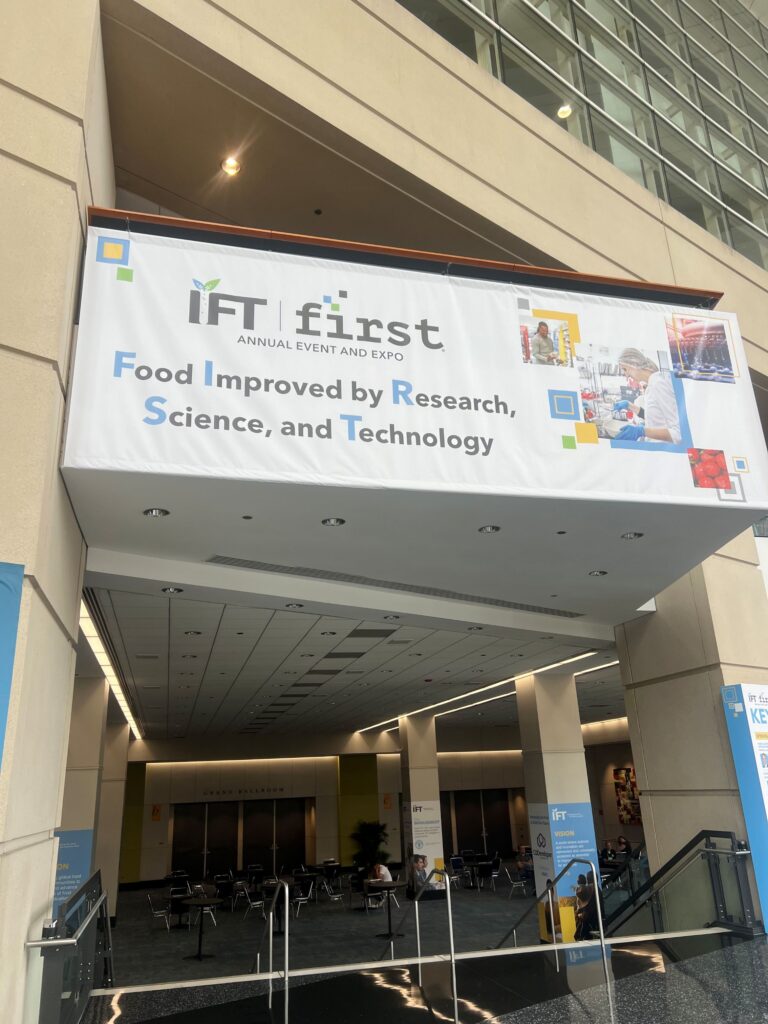
I’ve always been fascinated by a simple question: how do we create food that’s better for people while making it accessible to everyone?
For most of my career in biotech and food, that meant diving deep into fermentation science, exploring new fibers, and working on functional nutrition. But something remarkable happened at this year’s IFT FIRST summit that made me realize we’re living through a quiet revolution.
It wasn’t another trendy protein or exotic superfood capturing everyone’s attention. Instead, people were buzzing about artificial intelligence and what it means for how we create food.
From Kitchen Experiments to Digital Precision
Remember how food products used to come together? Someone would have a brilliant idea in a brainstorming session. The team would spend months, sometimes years, testing flavors, tweaking formulations, and navigating manufacturing challenges. If everything aligned perfectly, that product might hit store shelves in two years.
Today, that timeline is shrinking dramatically. Companies are using platforms like JourneyAI and Givaudan’s AromaSynth to understand what consumers actually want before they even know they want it. These tools can analyze millions of data points to predict which ingredients will work together and which formats will succeed in the market.
What used to rely heavily on intuition and trial-and-error is becoming much more strategic and data-driven.
Speed That Changes Everything
Here’s what really caught my attention: some startups are now developing complete product formulations in just eight weeks. While traditional companies are still identifying trends, these AI-enhanced teams have already modeled demand, created the product, tested it, and launched pilots.
This isn’t just about working faster, it’s about working smarter. We’re seeing products designed specifically for people using GLP-1 medications, or formulated for women going through menopause, or even personalized based on individual microbiome profiles. These aren’t pie-in-the-sky concepts anymore; they’re happening right now.
Enhancing Human Creativity, Not Replacing It
I know there’s concern about AI taking over. Will it replace food scientists? Creative chefs? The short answer is no.
What AI does is amplify human creativity. Think of it like upgrading from a pencil to a sophisticated design tool, the human is still the artist, but the possibilities expand exponentially.
At Akarso Bio, we work with fermented fibers and natural bioactives to create ingredients that actually communicate with the body to support metabolic health. AI isn’t just helpful for us, it’s essential. It helps us understand which fibers work best with specific plant extracts and guides our decisions as we scale up production.
Why This Matters Right Now
If you’re still thinking of AI as something to consider down the road, you might be missing the boat. The companies that embrace these tools today are the ones that will shape the food industry tomorrow.
They’re the ones who will move faster, make better decisions, and ultimately create products that improve people’s lives.
Are you working on something that combines AI with food innovation? I’d love to connect and hear what you’re building. Sometimes the best ideas come from unexpected conversations.
Want to chat? Drop me a line
